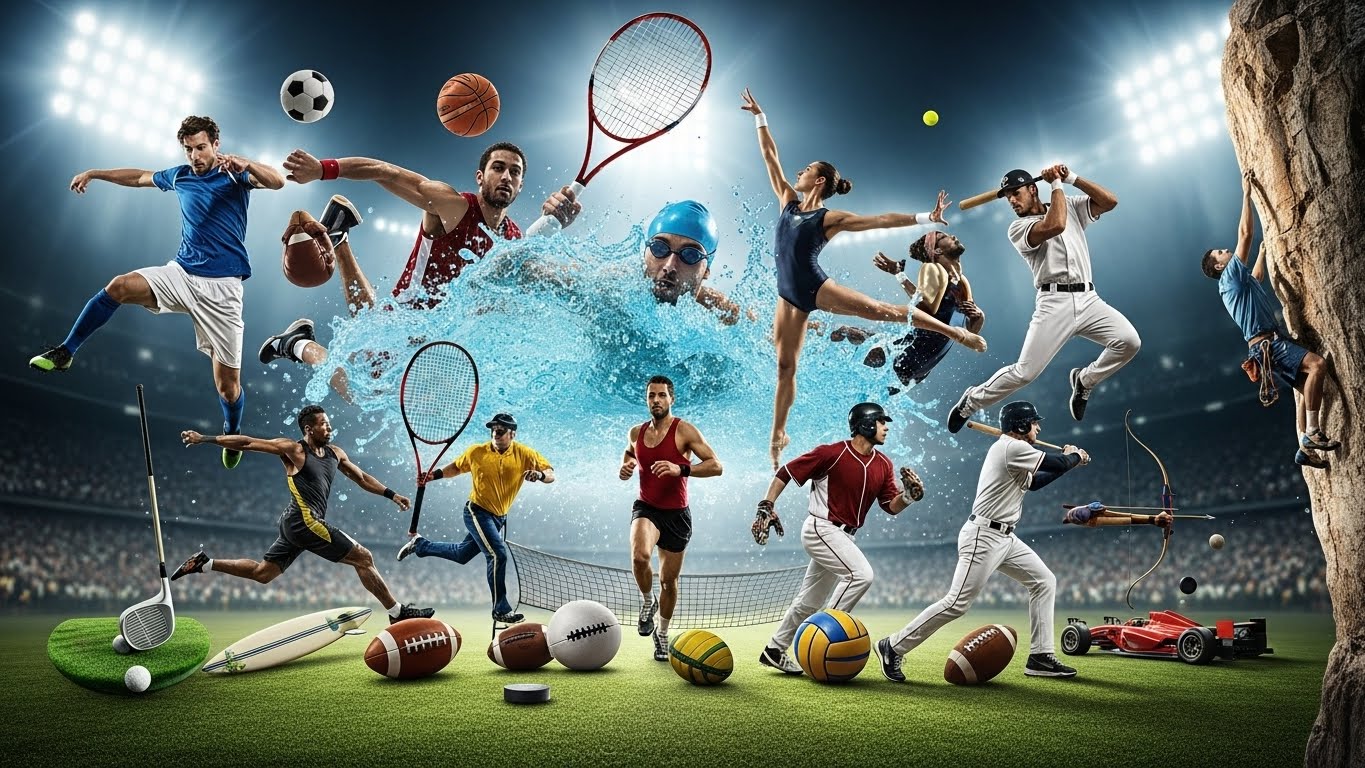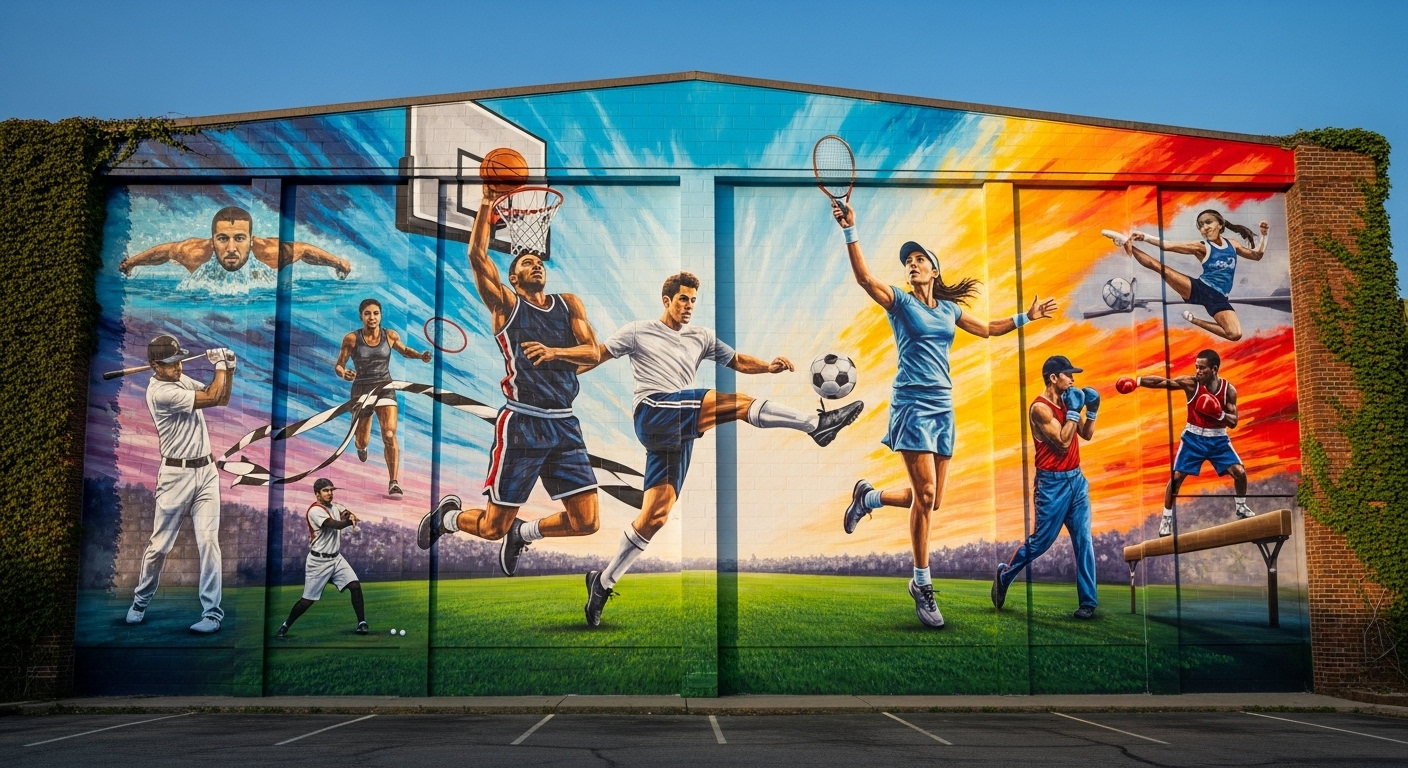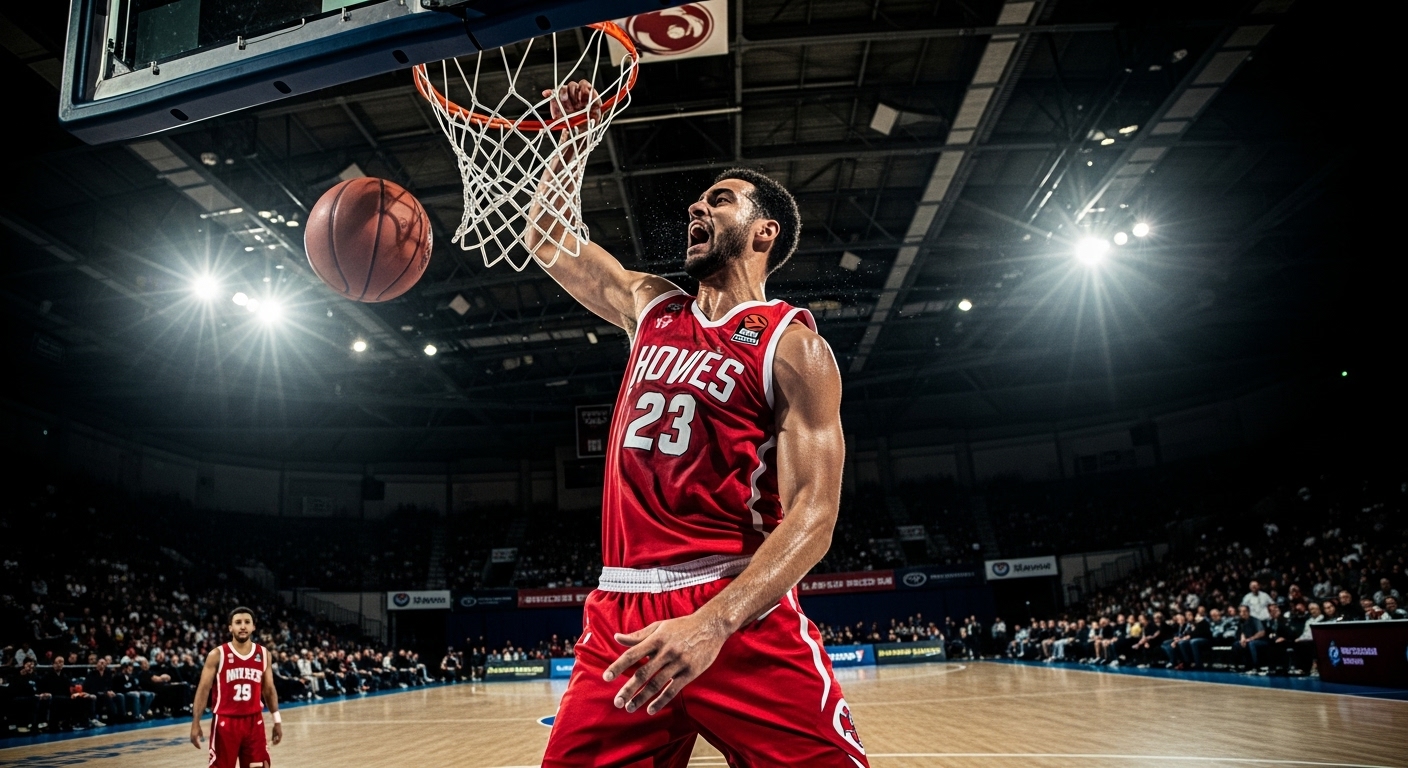Sports have always held a unique place in human society. From ancient arenas where gladiators fought for glory to modern stadiums filled with cheering fans, the essence of sports has remained the same: competition, passion, unity, and excellence. Across generations and cultures, sports have served as a universal language that transcends barriers of race, nationality, and belief. They represent not only physical achievement but also mental strength, teamwork, and the pursuit of greatness.
The Origins of Sporting Spirit
The roots of sports stretch back thousands of years. Ancient civilizations such as Greece, Egypt, and China all practiced early forms of athletic contests. The Olympic Games of ancient Greece, first recorded in 776 BC, set the foundation for what would become the global sporting movement we know today. Sports were not merely games; they were rituals that celebrated discipline, honor, and excellence.
Over time, sports evolved from sacred events into organized competitions. With industrialization and global communication, they became accessible to millions. The invention of modern rules and governing bodies allowed sports to flourish worldwide. Today, nearly every country participates in international sporting events, and the passion for competition continues to grow stronger with each generation.
Sports as a Universal Language
One of the most remarkable aspects of sports is their ability to unite people. Regardless of culture or background, the thrill of competition and the joy of victory resonate with everyone. A goal scored in soccer, a slam dunk in basketball, or a perfectly timed sprint in track and field can evoke emotion in people across continents. Sports break down barriers and bring individuals together under a shared passion.
Major sporting events like the Olympics and the World Cup serve as perfect examples of unity through competition. For a few weeks, the world pauses to celebrate human achievement. Nations compete fiercely, yet the overarching message is one of respect and camaraderie. These moments remind humanity that even in diversity, there can be unity.
The Psychology of Sports and Motivation
Beyond physical activity, sports are deeply rooted in psychology. Athletes push themselves not just to train their bodies, but to strengthen their minds. Mental resilience is one of the defining traits of champions. The ability to stay focused under pressure, to recover from setbacks, and to visualize success are all critical components of performance.
For many athletes, motivation comes from within—a burning desire to prove themselves. Others draw inspiration from their communities, families, or the fans who cheer for them. Sports psychology, a growing field of study, explores how emotions, concentration, and confidence affect performance. Coaches and players now recognize that success requires harmony between body and mind.
The Role of Teamwork in Success
While some sports highlight individual brilliance, teamwork remains one of the most essential ingredients in athletic success. Whether it’s soccer, basketball, cricket, or volleyball, coordination among players defines the outcome. The best teams are not necessarily those with the most talented individuals but those that work together seamlessly toward a shared goal.
Teamwork builds trust, communication, and empathy. Athletes learn to understand one another’s strengths and weaknesses, adjusting their play styles for the greater good. This spirit of cooperation not only enhances performance but also mirrors real-life lessons about collaboration, leadership, and shared responsibility.
The Individual Pursuit of Excellence
Individual sports, such as tennis, athletics, boxing, and gymnastics, showcase the incredible drive of human ambition. Competing alone means facing pressure head-on, without teammates to rely on. Every victory and every defeat is personal. The dedication required to reach the top in such sports is immense. Athletes often spend years perfecting a single move, sacrificing comfort and leisure for the sake of mastery.
The triumphs of great individual athletes inspire millions. Icons like Serena Williams, Usain Bolt, Roger Federer, and Simone Biles have shown the world that excellence comes from persistence and passion. Their journeys prove that success in sports, as in life, is not about avoiding failure but about rising stronger each time one falls.
Sports as a Mirror of Society
Sports often reflect the social and cultural dynamics of the times. They have been platforms for change, equality, and justice. From Jackie Robinson breaking racial barriers in baseball to Muhammad Ali’s stand for civil rights, sports have played a pivotal role in shaping history.
Athletes have become voices for the voiceless, using their fame to highlight important causes. Modern sports figures continue to advocate for issues like gender equality, mental health awareness, and environmental responsibility. Through sports, society confronts its challenges and progresses toward fairness and inclusion.
The Economic Power of Sports
Beyond the emotional and cultural impact, sports also represent a massive global industry. Professional leagues, sponsorships, merchandise, and broadcasting generate billions of dollars annually. Sports tourism and international events create jobs and boost local economies. Cities that host major tournaments often see long-term benefits in infrastructure and global recognition.
However, this economic success also brings challenges. The commercialization of sports can sometimes overshadow its spirit. Maintaining a balance between profit and integrity is essential to preserving the authenticity that draws fans in the first place. When managed responsibly, the business of sports can coexist with its deeper purpose: to inspire and entertain.
Technology’s Role in Modern Sports
Technology has revolutionized sports in every aspect. From performance tracking to injury prevention, data and innovation have reshaped how athletes train and compete. Wearable devices measure heart rate, speed, and endurance, giving players insights into their performance. Coaches use analytics to develop strategies and improve team efficiency.
Moreover, instant replays, video analysis, and goal-line technologies have enhanced fairness and accuracy in officiating. Fans, too, benefit from technological advances. High-definition broadcasts, virtual reality experiences, and social media engagement have made following sports more interactive than ever before. The future promises even more integration of artificial intelligence and data-driven decision-making in both training and competition.
The Influence of Fans
Fans are the heartbeat of sports. Their loyalty and passion give meaning to every game. The connection between players and supporters is emotional and powerful. When fans fill stadiums, chant team songs, or display banners of encouragement, they create an atmosphere that energizes athletes.
Fan engagement goes beyond attendance. In the digital age, supporters express their dedication online, forming communities that extend across borders. Even during times when stadiums are empty, such as global crises, the unwavering support of fans remains a constant source of motivation for teams. Their belief can lift morale and transform an ordinary match into a moment of history.
The Role of Sports in Youth Development
Sports play an essential role in shaping young minds and bodies. For children and teenagers, participation in athletics teaches discipline, cooperation, and resilience. It provides lessons about winning gracefully and accepting defeat with humility. Through practice and competition, young athletes learn the value of hard work and persistence.
Physical activity also promotes health and reduces the risk of lifestyle-related diseases. Beyond fitness, youth sports build character. They teach responsibility, leadership, and time management—skills that extend well beyond the playing field. Encouraging sports in education fosters a generation that values teamwork, respect, and perseverance.
Gender and Equality in Sports
In recent decades, the fight for gender equality in sports has gained tremendous momentum. Women athletes have proven that excellence knows no gender. From global icons like Serena Williams and Megan Rapinoe to local heroes in communities around the world, women continue to break records and stereotypes.
However, challenges remain. Pay disparities, limited media coverage, and unequal opportunities still exist in many sports. Addressing these issues is crucial not only for fairness but also for the growth of athletics as a whole. Equality ensures that talent is recognized and celebrated regardless of gender, creating a more inclusive and diverse sporting world.
Sports and Mental Health Awareness
Athletes, often seen as symbols of strength, also face immense psychological pressure. The expectations to perform, media scrutiny, and physical demands can take a toll on mental health. In recent years, many athletes have begun to speak openly about their struggles, breaking the stigma surrounding mental well-being.
Organizations are now prioritizing mental health support for players, recognizing that emotional balance is vital for performance. Coaches encourage mindfulness, rest, and psychological counseling as part of training programs. This growing awareness benefits not only professional athletes but also inspires fans and young players to value mental health as much as physical fitness.
The Globalization of Sports
In today’s interconnected world, sports have become a global language of connection. Athletes compete internationally, fans follow teams from other continents, and talent is scouted globally. Leagues such as the NBA, Premier League, and IPL attract players and audiences from diverse backgrounds. This cultural exchange enriches the sporting world, blending styles, traditions, and techniques.
Globalization has also expanded opportunities for collaboration. Charitable initiatives, international tournaments, and cross-border sponsorships bring countries closer together. Sports diplomacy, where athletic events foster goodwill between nations, continues to play an important role in global relations.
The Future of Sports
The future of sports promises to be even more dynamic and inclusive. As technology, diversity, and global participation grow, sports will continue to evolve. Virtual competitions, eSports, and hybrid forms of athletic entertainment are expanding the definition of what it means to be an athlete.
Sustainability is also becoming a major focus. Sports organizations are increasingly adopting environmentally friendly practices in stadium design, event management, and travel. The next generation of athletes and fans is likely to demand not only excellence on the field but also responsibility off it.
The Timeless Spirit of Competition
At its core, sports are about the human spirit. They embody courage, persistence, and the relentless pursuit of excellence. Every athlete, whether professional or amateur, shares a common goal: to push beyond limits and test what is possible. It is this pursuit that captivates fans and creates legends.
From the Olympic flame to local school tournaments, the passion for sports continues to inspire people of all ages. It teaches that success is not only measured by victory but also by effort, respect, and growth. The lessons learned through sports—discipline, resilience, teamwork, and humility—extend far beyond the boundaries of the field.
Conclusion
Sports are more than physical contests; they are reflections of humanity’s deepest values. They unite nations, inspire communities, and shape individuals. Whether through the roar of a crowd, the sweat of training, or the tears of triumph and defeat, sports remind us of what it means to strive for something greater than ourselves.
As the world continues to evolve, sports will remain a timeless thread that connects generations. They will continue to inspire dreams, ignite passion, and teach lessons that endure for a lifetime. The power of sports lies not only in winning but in the journey—the dedication, the emotion, and the shared belief that through effort and unity, anything is possible.




